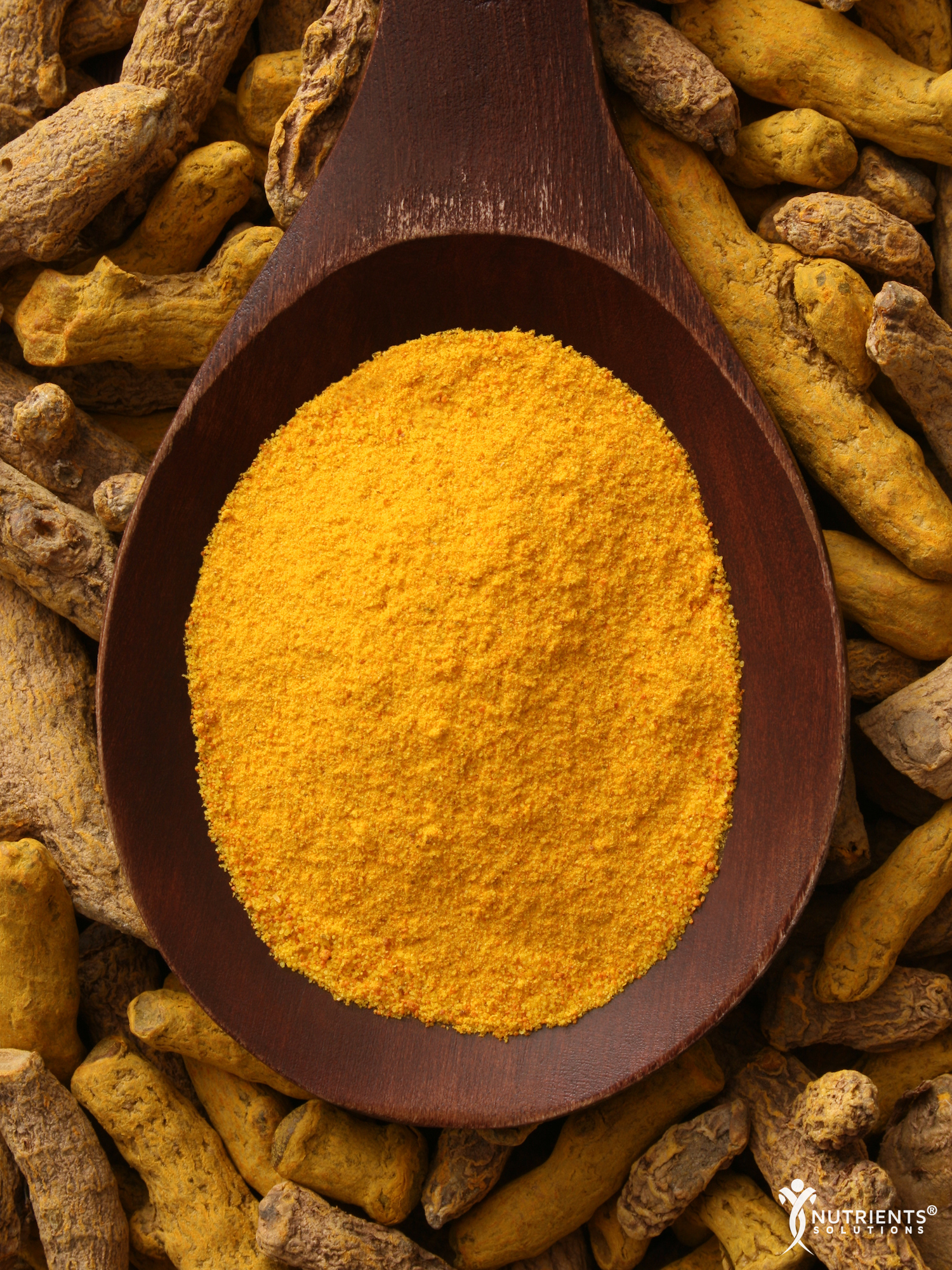Wellness Demystified: We Can Help You Discover Optimum Health
The Numerous Benefits of Turmeric

According to the U.S. Department of Health and Human Services, turmeric is a plant that is native to Asia and Central America. Closely related to ginger, turmeric is available as a supplement and is believed to treat a variety of health conditions. Turmeric is also used as a spice, and its main ingredients, called curcuminoids, give a yellow color to food and cosmetic products. The research has explored the benefits of turmeric and curcuminoids to determine how these substances can contribute to health and well-being.
Benefits in Type 2 Diabetes
The research has shown that turmeric is helpful for patients undergoing treatment for type 2 diabetes. A 2015 study, published in the Indian Journal of Clinical Biochemistry and authored by researchers from the Jawaharlal Institute of Postgraduate Medical Education and Research, compared the effects of medication alone to the combination of medication and turmeric supplementation on a group of patients with type 2 diabetes. The study results showed that turmeric helped reduce fasting and average blood sugar levels, in addition to lowering artery-clogging LDL cholesterol. Turmeric, therefore, is an effective complement to standard medications for type 2 diabetes. Turmeric could also help prevent the development of type 2 diabetes by lowering blood sugar levels. In a review of 11 different studies, researchers for a 2018 publication of Pharmacological Research found that supplementing with turmeric or curcumin lead to significant decreases in fasting and average blood sugar levels. The review found that supplementation was especially helpful for people with elevated blood sugar levels, so individuals in the pre-diabetic range may be able to prevent the development of diabetes with turmeric.
Turmeric and Arthritis
Additional research has shown that turmeric can prevent the development of arthritis; specifically, a 2006 study in the Journal of Natural Products assessed whether turmeric could stop the progression of this disease. The study’s authors, who were from the University of Arizona and the University of Kansas, found that when turmeric was applied, it helped prevent joint inflammation among animals with arthritis. They concluded that the curcumin within turmeric was responsible for this effect.
Turmeric for Knee Pain
The curcuminoids within turmeric could provide relief to people suffering from knee pain. A 2014 study in the journal Phytotherapy Research, which was conducted by scientists from Iran, compared the effectiveness of curcuminoids to that of a placebo among individuals suffering from osteoarthritis in the knee. Study results showed that compared to the placebo, curcuminoids resulted in decreases in pain and improvements in physical functioning. Supplementation with curcumin-rich turmeric could, therefore, be beneficial for those who suffer from knee pain related to osteoarthritis.
Benefits for Cholesterol
Early research with curcumin has shown beneficial effects on cholesterol. In fact, a 1992 study in the Indian Journal of Physiology and Pharmacology found that when people took a curcumin supplement for seven days, their total cholesterol dropped by 11 percent, whereas levels of healthy HDL cholesterol increased by 29 percent. Curcumin supplementation seems to be helpful for improving cholesterol levels and promoting heart health.
Usefulness for Ulcerative Colitis
The research has shown curcumin to be effective for patients with ulcerative colitis. A 2006 study in Clinical Gastroenterology and Hepatology, titled “Curcumin Maintenance Therapy for Ulcerative Colitis: Randomized, Multicenter, Double-Blind, Placebo-Controlled Trial,” found that curcumin, when paired with medication, was more effective than a placebo in preventing relapse among patients with ulcerative colitis. Curcumin would be useful as an adjunctive therapy for patients suffering from this condition.
Effects on Cancer
In addition to its other benefits, curcumin could be helpful for the treatment of cancer. Scientists affiliated with the VA Greater Los Angeles Healthcare System conducted a review of the research for a 2011 edition of Molecular Cancer, and they reported that curcumin had been found to help stop the growth of multiple cancers.
Turmeric has shown benefits in cancer, and the research also supports its use for diabetes, arthritis, and ulcerative colitis. In addition, turmeric has a beneficial impact on cholesterol levels, and it, therefore, could prevent the development of heart disease. Much of the research has shown benefits specifically with curcumin, so people looking to improve their health with a supplement should select one that contains curcumin. Individuals afflicted with specific conditions, such as diabetes or arthritis, would find turmeric-curcumin supplements to be especially helpful, but most people could benefit from its cancer-fighting, anti-inflammatory properties.
Turmeric for Cell Protection
Turmeric can support cell health because of the effects of one of its main constituents, curcumin. A 2001 study in The Journal of Trauma, authored by researchers from Singapore General Hospital, analyzed the effects of curcumin on human skin cells. Study results showed that the curcumin helped prevent damage in skin cells that were exposed to hydrogen peroxide. Turmeric appears to be useful for maintaining cellular health.
Turmeric and Brain Functioning
According to the research, turmeric appears to have a beneficial effect on the brain. In 2008, scientists from California reviewed the research with turmeric and published their findings in the Annals of the Indian Academy of Neurology. They concluded that the studies conducted with turmeric have indicated that it has antioxidant and anti-inflammatory effects and therefore can benefit brain functioning in patients with Alzheimer’s disease. They further reported that the research has shown that turmeric can protect against the plaque buildup and neuron degradation seen in Alzheimer’s disease and therefore improve memory.
Anti-Aging Effects of Turmeric
Turmeric can have an anti-aging effect on the skin. In a study in a 2007 publication of Naresuan University Journal, scientists working for the university assessed the effects of a facial cream containing turmeric on signs of aging. Study results showed that compared to a control, the cream reduced wrinkles and improved skin hydration and elasticity. Turmeric can, therefore, slow the process of skin aging and help to maintain a youthful appearance.
Provides Antioxidant Support
Scientists have attributed many of turmeric’s health benefits and disease-thwarting abilities to its impressive antioxidant content. When the body is overloaded with free radicals and doesn’t have enough antioxidants to neutralize them, the free radicals wreak havoc on healthy cells and DNA throughout the body. This oxidative damage plays a role in the pathogenesis of several diseases, from arthritis to diabetes and heart disease. It also accelerates the aging process inside and out. The antioxidant power of turmeric has been linked to the prevention of cancer, atherosclerosis and neurodegenerative diseases.
Fights Aging and Promotes Longevity
Research shows that turmeric’s anti-inflammatory qualities are responsible for its phenomenal anti-aging abilities. Higher levels of pro-inflammatory cytokines are seen in elderly people. This low-grade inflammation is thought to be caused by oxidative stress as the body’s production of its own antioxidants declines. According to a research study published in Current Pharmaceutical Design, turmeric could slow down aging and delay the onset of age-related diseases by suppressing the body’s inflammatory response to oxidative stress.
In a study on rats, curcumin (the active compound in turmeric) was shown to slow down the aging process by blocking age-related changes in inflammatory markers.
References:
- https://nccih.nih.gov/health/turmeric/ataglance.htm
- https://link.springer.com/article/10.1007%2Fs12291-014-0436-2
- https://www.sciencedirect.com/science/article/abs/pii/S1043661817308733
- https://pubs.acs.org/doi/abs/10.1021/np050327j
- https://onlinelibrary.wiley.com/doi/full/10.1002/ptr.5174
- http://www.ijpp.com/IJPP%20archives/1992_36_4/273-275.pdf
- https://www.cghjournal.org/article/S1542-3565(06)00800-7/abstract
- https://molecular-cancer.biomedcentral.com/articles/10.1186/1476-4598-10-12
- https://www.ncbi.nlm.nih.gov/pubmed/11706342
- https://www.ncbi.nlm.nih.gov/pubmed/19966973
- https://www.researchgate.net/publication/266068699_Efficacy_and_Safety_of_Curcuminoids_Loaded_Solid_Lipid_Nanoparticles_Facial_Cream_as_an_Anti-aging_Agent
- https://www.ncbi.nlm.nih.gov/pubmed/17569207
- https://www.ncbi.nlm.nih.gov/pmc/articles/PMC3614697/
- https://www.ncbi.nlm.nih.gov/pubmed/20388102
- https://www.ncbi.nlm.nih.gov/pubmed/28259223


© 2019 Nutrients Solutions, LLC. All rights reserved. Disclaimer: The information provided is for educational purposes only and does not constitute medical advice. Always seek the advice of your physician or qualified healthcare provider with any questions or concerns about your health. Check with your doctor before beginning any exercise program. Never disregard or delay seeking medical advice because of something you have heard or read in this article or the internet.












